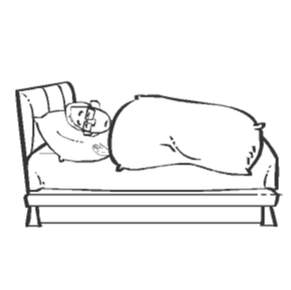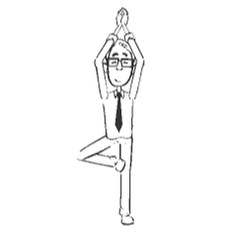11.7 million working days were lost due to work related mental illness 2015/2016 (HSE,2017)
£8.69 saving for every £1 invested into looking after employee wellbeing??
We need to do things differently!
Use the 5 ways to wellbeing at work!
|
x
Just as we have a basic need for food and shelter, we also have a basic need to belong to a group and form relationships. Countless studies have shown that quality social interaction helps with cognitive sharpness, and even puts a stop to our stress response. Psychologists have suggested that seeing a friend several times throughout the week increases our happiness 5x. Feeling ‘part of the team’ and building relationships in the workplace are important, as this is where we spend much of our time. Positive communication, recognition, and group activity can have a great impact on the wellbeing of team members. As a colleague, be supportive and aware of inclusion within the workplace, and consider how positive, or destructive, your interactions with others can be. |
x
This one is about the kind of stuff that sometimes gets left behind when we are feeling stressed. Take in the world around you, notice the beauty in things, reflect, relax. Relaxation therapy and meditation is said to release GABA: “The Anti-Anxiety Molecule”, having a similar effect to benzodiazepines! |
x
So we all know that exercise is good for us, right? But how often are we actually committing ourselves to the right level of exercise to benefit both our physical and mental health? Adults should be carrying out 150 minutes of moderate activity per week, as well as strength exercises to stay well - that’s 30 minutes, 5 days a week. Doing this will release dopamine and serotonin, having an anti-depressant effect. It also promotes mental sharpness, and even has anti-ageing effects! To keep you motivated, try making exercise more natural, and better still social. Things like walks with friends or loved ones, replacing car journeys with cycling or jogging, or playing games that involve physical exercise. If you’re an employer, why not consider the ‘ride to work scheme’, employee outings during breaks – walks, games, or even after work sports clubs? Not only will this promote physical activity, but also better working relationships between staff. |
x
Learning isn’t just about classrooms in school. It’s about challenging ourselves, and achieving! The sense of achievement also releases dopamine – the happy reward chemical. Setting goals and challenges that require you to develop is a prime way of achieving this, regardless of what age you are! Managers – Take time one-to-one with your staff to set goals, and offer new challenges to their career. Additional responsibilities and opportunities to learn can be beneficial to both parties – but don’t forget to recognise your employee’s hard efforts, and give them a sense of being appreciated and part of the team! Setting up a mentorship programme at work can be a huge benefit to both business and team member. This provides a great opportunity to connect, learn and give. |
x
So we all know that giving helps others, whether you donate, volunteer, or give a hand to a person in need; But did you know, that it has positive effects for the giver also? It is said to reduce depression, stress, and blood pressure, and heighten our self-esteem. The sense of satisfaction from helping another person releases serotonin (mood stabilising), dopamine (feel good), and Endorphins (endogenous opioids) – thus the term ‘helpers high’ – like any other high, this one is also addictive! Why not gain a healthy addiction, and volunteer to help others with valued lives, or contact volunteer Cornwall to find a wide range of voluntary opportunities to suit your interests and ambitions! |
Methods of Reducing Stress
Every person handles stress in a different way. It has a lot to do with our resilience. Imagine a cup that holds our stress... Each stressful event adds to the cup. For people with a lot of resilience, their cup will be much larger. For somebody who isn't very resilient, their cup may overflow very quickly, and thats when people start to become unwell.
Severe stress causes the body to have a ‘fight or flight’ reaction, releasing a number of chemicals including adrenaline, cortisol and norepinephrine. In a natural environment, these chemicals would mobilise a lot of energy in preparation for physical action. Sometimes we experience this reaction when ‘dealing well under pressure’; however, severe and prolonged periods of stress can cause these chemicals to become toxic in the body, causing inflammation to the brain, depressive illness, sleep disturbance and in some cases brain damage!
Now Imagine a tap on our stress cups, ways of releasing our stresses, and keeping ourselves better. Click below to learn some ways of managing, and releasing your stress.
Severe stress causes the body to have a ‘fight or flight’ reaction, releasing a number of chemicals including adrenaline, cortisol and norepinephrine. In a natural environment, these chemicals would mobilise a lot of energy in preparation for physical action. Sometimes we experience this reaction when ‘dealing well under pressure’; however, severe and prolonged periods of stress can cause these chemicals to become toxic in the body, causing inflammation to the brain, depressive illness, sleep disturbance and in some cases brain damage!
Now Imagine a tap on our stress cups, ways of releasing our stresses, and keeping ourselves better. Click below to learn some ways of managing, and releasing your stress.
|
x
Stress can become severe when we have many things to do, and little time to do them in. The more stressed we become, the less productive we are, which places us into a downwards spiral. Try sorting you 'To Do List' into separate sections:
x
All work and no play made Jack a dull boy... One of the most paramount things in maintaining wellbeing is taking time to do things that you really enjoy. Try setting aside atleast 1 day a week, or a couple hours 3-4 times per week to have a hobby, socialise, relax, and shut off from your responsibilities. Perhaps refer back to 'the 5 ways to wellbeing' and learn something new! |
x
The more we sit back and believe that there is simply 'Nothing we can do' about our stressors, the longer, and more damaging our stress will become. Action plan your recovery. Make a list of the stressful things in your life, and those that help you to relax or be happy, avoiding things that could cause further damage such as drugs or alcohol. Seperate the list of stressors into things that you can walk away from, things that you could change, and things that you have no control over. Stressful situations and people that you can walk away from - consider it. Placing yourself in a different situation can be a saviour when you are feeling unwell. Things that you can change: Action plan what you are going to do to change them, and place time limits on these actions! For help doing this, consider advice from one of our wellbeing workers, or attend a stress busting workshop though us or one of our partners. Things that you have no control over - you will be surprised how much better you can manage and accept these once your other stressors have gone. x
When we sleep, our unconscious works like a machine, processing and emptying our stress buckets. Long periods without sleep will make us feel worse, tiredness will also effect our productivity, and add to the level of stress that we have. Its important to keep a good body rhythm going. Try to sleep equal amounts and at the same time each day. Try not to nap when you shouldn't be sleeping. Try to wind down at least a half hour before bed. Have a bath, journal, listen to relaxing music, or even try meditation. Avoid screen time 2 hours before bed. The light from screens suppress the sleep inducing hormone melatonin. Try purchasing a separate alarm clock, and having your phone switched off at night. Responding to emails and texts during the night, or waking up and checking for notifications can cause the body to release the stress hormone cortisol, which also prevents us from sleeping. |
x
Often we cope with our stress by adopting unhealthy habits such as drinking, drug use, promiscuity, and involving ourselves with people who have a negative effect on our lives. Often these habits are difficult to recognise when we are feeling unwell, and the effects they have on us become masked, due to the short term release. Banning unhealthy choices in the short term will make for a healthier and happier long term. 'putting our head in the sand' does not solve our situation. x
Relaxation can take many forms, from meditation, mindfulness practice, yoga, Deep breathing, progressive muscle relaxation, or even rythmic exercise. Try taking a look at Help Guide to learn more about these techniques, or contact Valued Lives to find out more about our guided relaxation sessions, mindfulness meditation, and massage therapy. |
x
Keeping a journal, or mood diary can help you keep track of what positively and negatively effects your wellbeing. It give you an opportunity to reflect - you can action plan how to avoid or manage stressful situations. The days where you felt good, why was this? Can you do more of it? x
Getting creative has several benefits in reducing stress. The focus it requires allows our minds to float away from the things that are troubling us, disrupting our stress response. It is thought that the absence that this focus allows is similar to that of meditation - so if you don't feel meditation is for you, pick up an art project! Creativity also provides an opportunity to express ourselves, and get our feelings out in a different form. It's also enjoyable, and can become a good habit to have, giving regular slots to wind down and relax throughout the week. The feeling of accomplishment also releases dopamine - the feel good chemical - yey! Why not contact Valued Lives about Art therapy? |
x
Talking to a friend or loved one can help to elevate some of the pressure, whilst allowing us to acknowledge and process our emotion. The saying 'A problem shared is a problem solved' can often be the case, not only because it leaves us feeling supported, but if your lucky, they may just take some of the pressure away from you by helping a hand. If you are stressed from work, try talking to your manager or HR department. They have a legal duty under the health and safety act to keep you well, and are obliged to risk assess your situation and make reasonable adjustments to reduce your stress. x
Studies have shown that getting outdoors can reduce the levels of cortisol (the stress hormone), and also inflammation which causes a number of health problems. This could be related to the toxicity of our stress chemicals over a period of time. The benefits of being outdoors flows from sunlight, to fresh air, to physical exercise. Taking time in nature can also allow us to 'take notice' and appreciate the beauty around us. Try taking short walks during your lunch breaks, and see how much more alert and productive you feel in the afternoon! |















